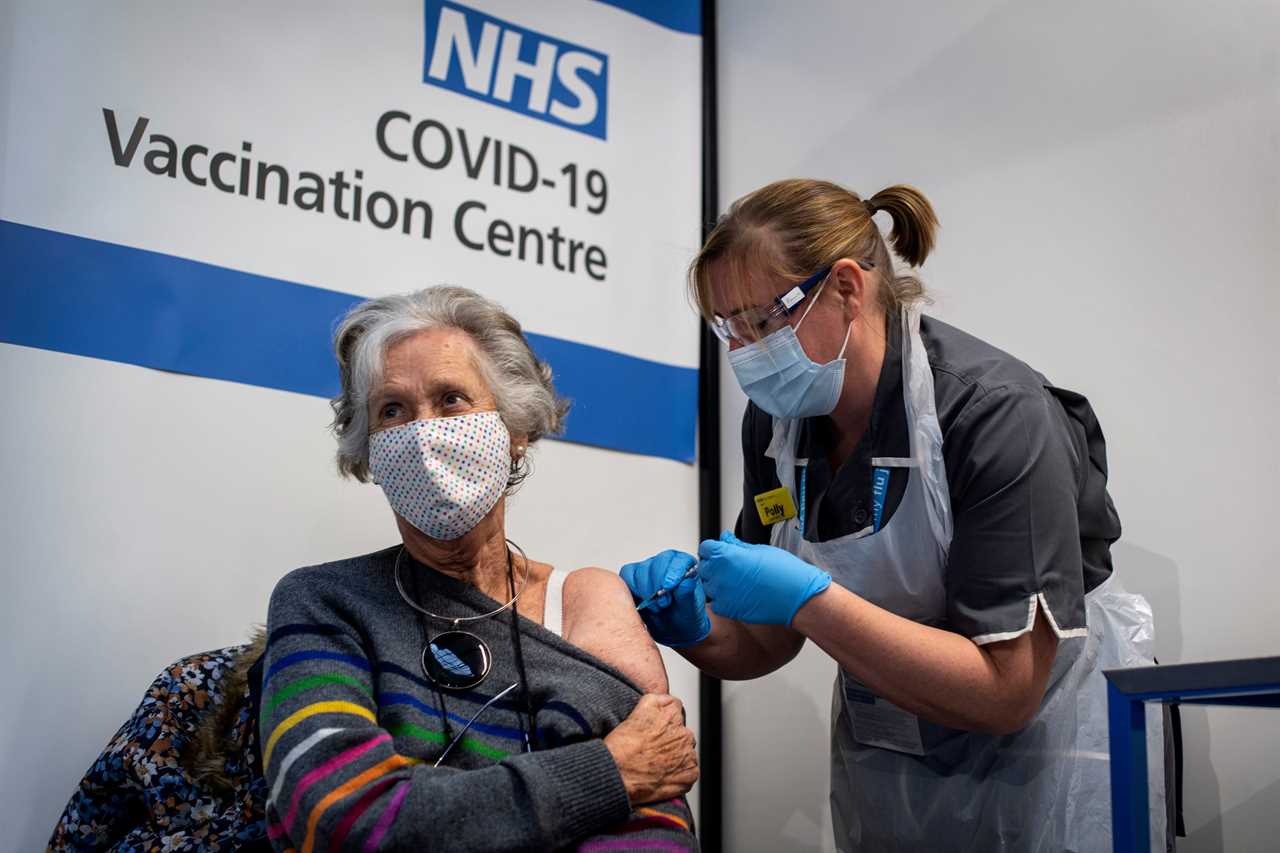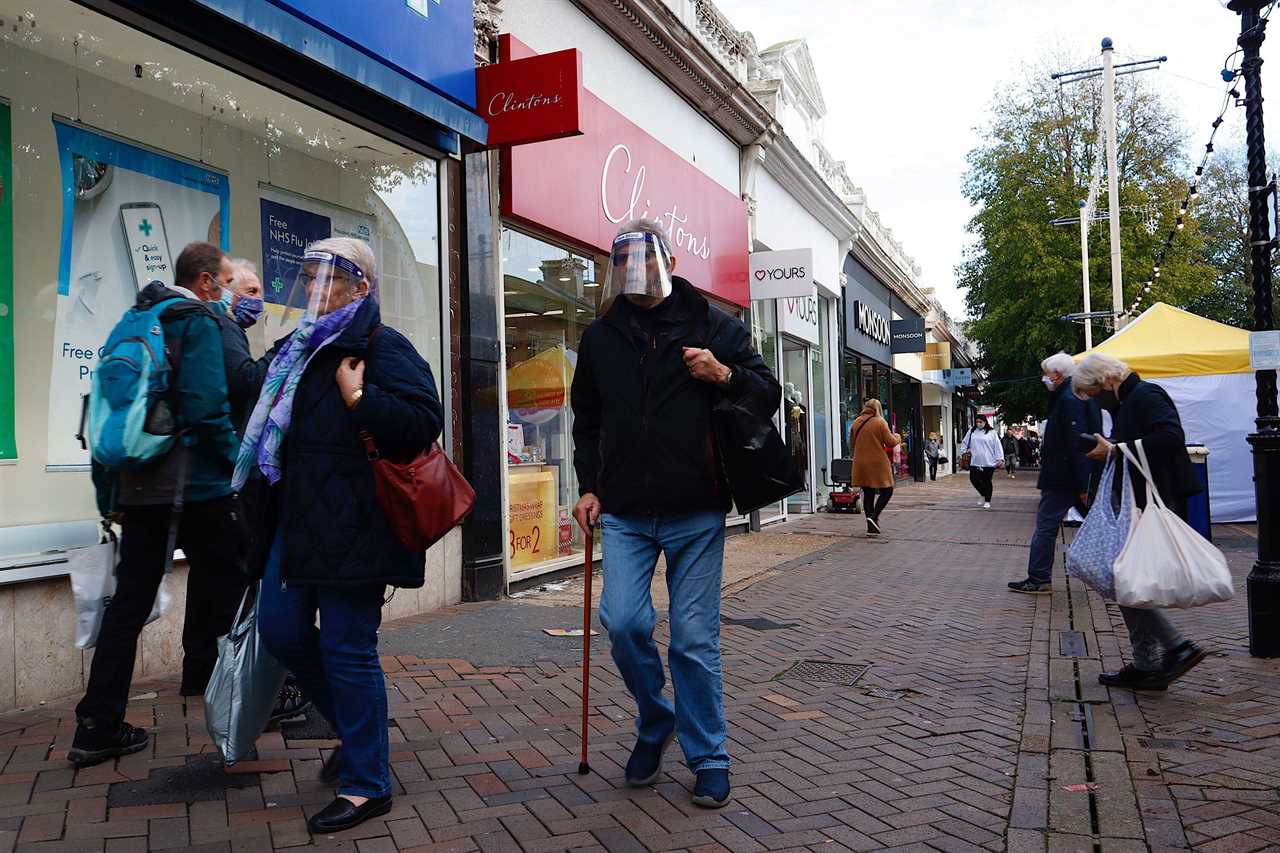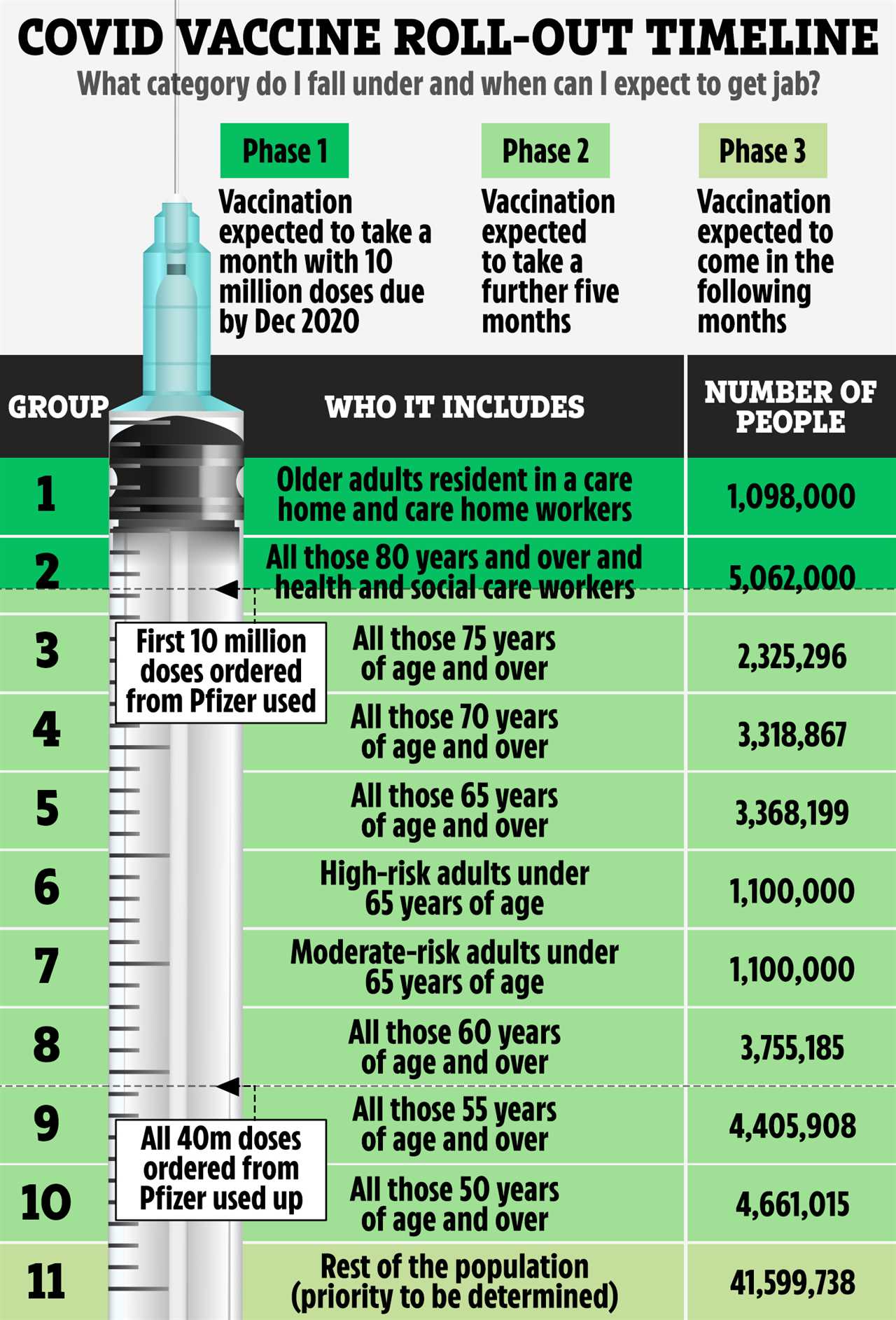THE UK’s coronavirus death toll rose by 533 today – bringing the grim total to 62,566.
And the total number of positive cases now stands at 1,766,819 as 16,578 new Covid infections were reported in the last 24 hours.

Yesterday, dubbed V-Day, marked the historic moment Britain became the first nation in the world to roll out the coronavirus vaccine.
Margaret Keenan, a 90-year-old gran, warmed hearts across the world as she became the first person in the world to have the jab.
However – there were 12,282 new positive cases of the virus across the UK yesterday, as well as 616 more deaths.
Today’s 16,578 infection figure shows a 3.9 per cent increase in comparison to this time last week – when 16,170 new cases were reported.
Public Health Wales announced this afternoon that 2,238 new cases of the deadly virus were recorded in the last 24 hours.
And the nation also reported 31 new deaths linked to Covid-19 today.
The total number of confirmed reported deaths in hospitals in England has risen to 43,248, after 344 died today.
Patients were aged between 16 and 100 years old – and all except 11 had known underlying health conditions.
Those without the underlying health conditions were aged 51 to 96.
Today’s figures come as…
- Families in Wales are urged to CANCEL their Christmas plans
- People are warned to not take Pfizer jab if they have “significant allergies”
- London faces Tier 3 next week as the capital has the worst Covid rate in the UK
- Pregnant Zara Tindall and hubby Mike joked about ‘naming their baby after Covid’
- Here are the areas at risk of moving into the Tier 3 bracket next week
- Chris Witty warned Britain could be under coronavirus restrictions until at least March
A further 12 people have died with Covid-19 in Northern Ireland today, the Department of Health said.
An additional 482 people tested positive for the virus in the last 24-hour reporting period.
Meanwhile, officials have warned that London needs to enter into Tier 3 “within 48 hours” or risk a “terrible situation” as the capital now has the worst Covid rates in the UK.
Officials fear it is now too late to turn the tide before the capital is locked into tighter restrictions, despite the Tier review not being scheduled to take place until December 16.
Professor John Ashton, a former regional director of public health for north-west England, said: “[The government] needs to decide in the next 48 hours whether to move London into Tier 3.
“Otherwise they really risk a terrible situation for London, with deaths going up during the Christmas period.”
He also warned: “They might have to go to complete lockdown.”
This comes just 24 hours after Britain’s hope of a ‘normal’ Spring was revitalised as the Pfizer vaccine was rolled out in hospitals.
Health Secretary Matt Hancock even shed a tear live on-air yesterday as he spoke of a “light at the end of the tunnel.”
COVID CHRISTMAS WARNING
He said: “It has been such a tough year for so many people and finally we have our way through it – our light at the end of the tunnel as so many people are saying.”
But the good news does not mean the struggle of the pandemic is over.
This morning, families in Wales were strongly advised to cancel their plans for Christmas after a fresh surge in coronavirus cases were recorded.
People across the four nations are set to have restrictions relaxed for five days over the festive season, but the Welsh Government’s top scientists warned against celebrations between different households.
Scientists from the Welsh Government’s Technical Advisory Group (TAG) delivered a grim warning, saying Christmas dinners or lunches are “likely to lead to higher deaths and hospitalisations after Christmas”.
They warned: “If people can avoid seeing others over the Christmas period, perhaps postponing celebrations until later next year or meeting remotely, then this is strongly advised.
“Pre-isolation may be a helpful consideration for families with children before visiting older relatives.
“Similarly, in occupations where there is a higher odds ratio of infection, pre-isolation before mixing with older adults may reduce the risk of transmission.”








